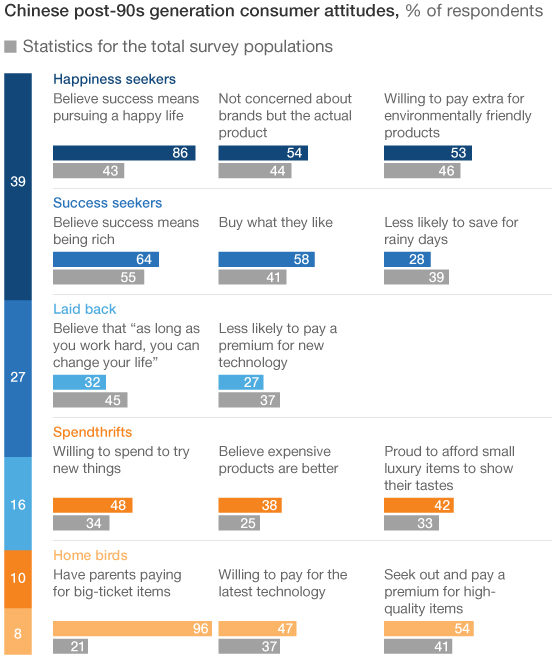| Plus: What we’re reading this week |
 |
July 13, 2018 |
|
 |
| Weekly need-to-know content |
|
|
|
|
| Welcome to the Shortlist: new ideas on timely topics, plus a few insights into our people. Subscribe to get it in your inbox every Friday. This week, we look at digital China—plus, scroll down for summer-reading picks from Jonathan Woetzel, a senior partner based in Shanghai. |
|
|
|
| Much has been written about the rise of China as an economic and geopolitical force. Let’s break off one chunk this week: China’s role as a major player in digital technologies at home and around the world. |
| China’s consumer economy is now among the world’s most digitized, and its business landscape is packed with start-ups and rapidly transforming business models. In little more than a decade, China has become the largest e-commerce market in the world, accounting for more than 40 percent of global e-commerce transactions. China’s mobile payments are 11 times the value of those in the United States, thanks to consumers’ early embrace of mobile technology. |
| This flourishing digital culture is paying innovation dividends, as China is home to one in three of the world’s “unicorns,” or start-ups with more than $1 billion in market cap. And China now places in the top ranks of global venture-capital investment in virtual reality, autonomous vehicles, 3-D printing, robotics, drones, and artificial intelligence. |
| That innovation base is birthing a host of new business models that might soon revitalize other, previously lagging sectors of China’s economy. According to a recent report from the McKinsey Global Institute, these new approaches include directly linking business buyers and suppliers in disintermediation plays (Alibaba and others) and disaggregating incumbent value chains as digital attackers move in. |
| What might be next? Creative destruction on a grand scale, which could ratchet up productivity and the international competitiveness of China’s economy. By 2030, 10 to 45 percent of revenue in China’s industries could shift from old business models to new, digitally enabled ones. The transformation is picking up steam: in 2013, industries in the United States were 4.9 times more digitized than those in China; in 2016, that figure had fallen to 3.7 times. Look for China to continue shaping the global digital landscape and supporting and inspiring entrepreneurship far beyond its own borders. |
|
|
| OFF THE CHARTS |
| Wanted: A more balanced life |
| In China, the generation born in the 1990s has yet to experience anything close to a recession. They aim to enjoy life, in addition to achieving financial success—unlike prior generations, which focused mainly on achievement. |
 |
|
|
| INTERVIEW |
| Kai-Fu Lee on who’s leading the AI race |
| Kai-Fu Lee, an expert on artificial intelligence, spoke with McKinsey about the advantages and disadvantages China and the US face in developing and adopting AI technologies. “Clearly in internet AI, the US has a leadership position,” he said. “But the Chinese companies with more data are catching up.” |
|
|
|
|
| MORE ON MCKINSEY.COM |
| When digital alone won’t do | There’s no doubt that digital is rocket fuel for sales organizations. But new data reveals that what customers want most is great digital interactions and the human touch. |
| A revolution in the woods? | Forest management still operates largely according to fundamentals developed by Hans Carl von Carlowitz, the dean of sustainable forestry, more than 300 years ago. But there are signs of fresh growth in the digital realm. |
| The corporate bank of the future | Return-on-equity pressure calls for a return to core skills. To compete, corporate banks will need to do nothing less than reimagine their front, middle, and back offices. |
|
|
| WHAT WE’RE READING | Jonathan Woetzel |
|
| Jonathan Woetzel, a senior partner based in Shanghai, has been instrumental in establishing McKinsey’s presence in China. Jonathan has authored or co-authored a number of books, including the bestseller The One Hour China Book. |
|
|
|
| Managing dislocation is a central challenge of our time, and Matthew Desmond’s Evicted: Poverty and Profit in the American City does a great job of putting the housing and homelessness crisis smack on the table. It’s a factual look at how failure to renew housing stock has disrupted the community in the city of Milwaukee, in the style of Barbara Ehrenreich’s Nickel and Dimed (also really worth a read). No one who reads it will ever ignore these issues again. |
| Closer to my home, The Three-Body Problem, a massive trilogy by Cixin Liu, is an extremely cool sci-fi series that brings Chinese themes to life against a backdrop of AI acceleration. |
| And finally, my friend Manuel Pastor has just published State of Resistance, which is a surprisingly optimistic work about how California’s experience in changing demographics and subsequent fiscal and social initiatives point the way for a new model for the rest of the country. |
|
|
|
| BACKTALK |
| Have feedback or ideas? We want to hear from you. |
|
|
|
|
| |